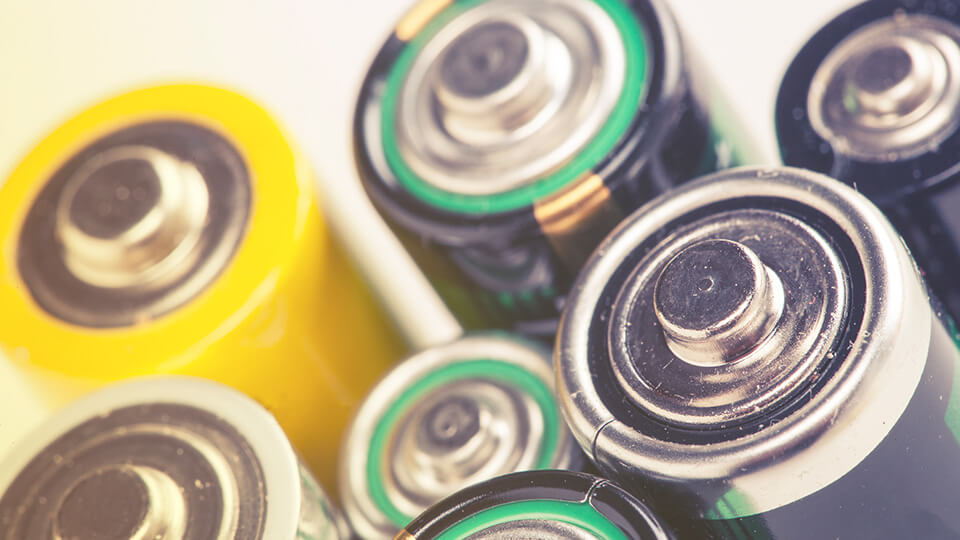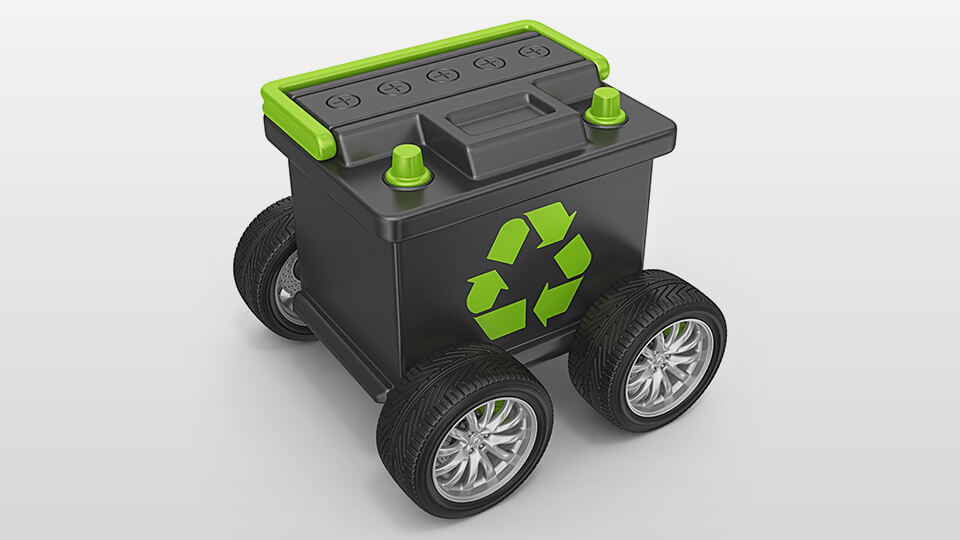A key to successful recycling is to make it as easy as possible for everyone to get involved. Ecocycle kept this ideal in mind when developing its battery recycling program.
First up, we take the guesswork out of battery recycling.
Is it a battery? If the answer is yes, we can accept it for recycling. That includes everything from tiny button cells up to car and truck batteries.
And when the large batteries – now being installed in homes, at wind farms or to stabilise the electricity grid – reach the end of their lives, we’ll offer recycling solutions for them too.
Here’s an insight into how Ecocycle collects, transports, stores and recycles batteries.
Collection
We make collection of batteries as simple as can be.
For small handheld batteries, our 5 litre and 11 litre prepaid collection buckets are the ideal solution. Every workplace should have one, and should encourage employees to bring their batteries from home for recycling.
Are our buckets too small? Our wheelie bins can meet the need of councils and retailers that collect large numbers of batteries through their programs.
Car batteries are often most conveniently collected on pallets, to allow loading by forklift.
Transport
We look after the pickup of waste batteries using trucks matched to the size of the battery collection containers.
Our trucks are all company-owned vehicles and our drivers are company employees fully trained in the handling and transport of battery waste.
Sorting
Sorting batteries by size and chemistry is an important first step in the recycling process.
While this is largely a manual process at present, Ecocycle is investing in state-of-the-art sorting machines that will significantly increase the volume of battery waste that can be recycled.
Storage
Due to the wide variety of batteries that can be recycled, it is often necessary to store some types until a viable quantity that can be economically processed has accumulated.
While rare, some batteries – particularly those that contain lithium – can catch fire.
Our new battery storage facility will be equipped with fire detection systems, video surveillance and automated fire suppression systems.
Recycling
The variety of battery types means that a range of technologies is required to recover the component materials. As a result, different companies specialise in recovering specific resources.
With our expertise in mercury recycling, Ecocycle naturally specialises in recycling mercury button batteries. Silver is another element we extract from batteries.
At present, other types of sorted batteries are sent to companies with the appropriate capabilities.
Some materials are recovered in a form that allows them to be used in making new batteries, and batteries with recycled content are now appearing on the market.
In other cases, battery waste can be repurposed, for example as fertiliser.
Diverting mountains of waste
In Australia, tens of millions of batteries reach the end of their working lives each year. Less than 10% get recycled, with the rest ending up in landfill. They represent an environmental hazard and a waste of valuable resources.
This is an area of recycling where one person really can make a difference because it’s so simple for workplaces and schools to set up their own mini-recycling programs for batteries.
Talk to your boss or principal and tell them about Ecocycle’s convenient, prepaid battery collection buckets.
All they need to do is to call us on 1300 326 292 and that we’ll take care of the rest.





